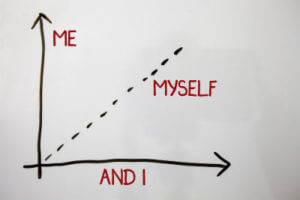We hear about it from friends, we see it in our social media home feeds, we watch celebrities and psychologists talk about it on television and webinars – self-acceptance seems to be everywhere yet when it comes to our own lives and psyches it’s nowhere to be found. How do you know and accept yourself? What is self-acceptance, anyway?
Self-acceptance definition varies depending on whom you ask – some self-acceptance psychology theorists offer long-established thought models and concepts while others explain it through simple daily self-acceptance exercises such as repeating positive affirmations or treating yourself to something you’ve been wanting. Regardless of what the approach is, the truth remains – the importance of self-acceptance can’t be overlooked if we want to lead a fulfilling, happy life.
So, let’s look at what it means to accept yourself in layman’s terms and offer simple self—acceptance examples. Take this article as a much needed and clear intro to the subject.
Talk to a top-rated psychic now
What is acceptance in psychology?
Briefly and put simply, acceptance towards the self entails understanding and embracing our past, current, and overall limitations, without judging them. Limitations are an unchanging part of the human experience – even the most successful or happy among us have limits.
We have a limited amount of time to live, a limited amount of hours every day, and limited energy to do the things we want to do. We need to rest, sleep, take short and long breaks. We have limited resources – one sun, one moon, one Earth. We have our particular citizenships, families, environments, and innate talents – which while making us unique, also make us limited. Some of us have the voice to be an opera singer, the others of us are destined to only sing in the shower when no one is in the house.
What makes self-acceptance difficult is our acquired judgments about what’s good and what’s not. Who says being taller is better? Sure, when you want to reach to a high shelf, it’s useful. But otherwise, it’s just another trait. Why should certain sizes be deemed desirable while others not? Who decides all this? We do. And we give others the power to judge us when we do so.
A person who possesses deep self-acceptance refuses to give power to others to decide whether he or she is desirable, good, or loveable. There are eight billion people on Earth and asking them to think alike is like asking all dogs to like the same treat. Some like bacon flavored, others like toys that make squeaky noises. Dog owners would attest to this – each dog has its personality and it’s what’s natural. People are no different.
We come in different sizes, colors, and shapes, and we have different innate tastes and preferences. The only thing that is the same for all of us is that we share the same human limitations – being born, having to live in a limited human body, and death. Within this container, we are unique and we are free.
 How do I find self-acceptance?
How do I find self-acceptance?
To find and cultivate self-acceptance over the long run, we must first identify those areas we judge ourselves. Without understanding why we what we do, we go to judgment. Let’s say you are a shopaholic. You can’t go a day without stopping by the mall or checking sales. And you judge yourself for it.
Accepting yourself wouldn’t mean spending all your money on shopping. Accepting yourself would mean saying, “Okay I have a habit. Clearly, it serves a purpose. It’s trying to tell me something about my deeper needs. What is it serving?” The self-accepting way to tackle the problem would be to try to understand it without judging it. Something in you wants to do this. A part of you seeks whatever psychological relief – however temporary – shopping brings.
Some people imagine a better future when they shop. They imagine the types of situations where they could wear the clothes they bought. It helps them be more optimistic about the future. The self-accepting approach would be to tell them why they can’t be optimistic about the future on their own. What makes them gloomy about it, that they need the shopping fix? Without judgment, to understand where the darkness comes from.
Other people shop because they are lonely. Shopping becomes an excuse to go out and interact with people. To talk to people, to be in the company of crowds, to get out of the home. In such a case, the self-accepting approach would be to explore the loneliness this person is experiencing. Try to understand how they can develop satisfying friendships that’ll give them the daily social interaction they need.
Talk to a top-rated psychic now
Self-acceptance Exercises
You can find many positive affirmations online. You can repeat them if you like, or write them on post-its around the house. You can make your house beautiful, keep a journal, buy yourself flowers, give yourself a spa treatment, try really hard yet still dislike or even hate yourself.
In most situations, people who struggle with self-acceptance had very critical mothers or primary caretakers growing up. So your whole psychology won’t change just because you kept a journal today – but you must start with baby steps. You have to start somewhere.
In the long run, however, what would help is looking within, hearing those voices in your head that tell you, you are not good enough, that criticize you because you aren’t rich, skinny, famous, successful or perfect. Those voices aren’t telling the truth. They are telling you things you have internalized growing up – what you heard people say to you or to each other in your environment.
A very potent self-acceptance, in our day and age, is to turn off or control your exposure to the media. Delete all those apps that tell you, you are not good enough. Leave pages and groups where judgment prevails. Don’t watch tv programs or commercials that tell you, you aren’t perfect. (Or make fun of them, and let go!)
 Psychic Work
Psychic Work
To go really deep into your psyche, you must work with a licensed therapist or counselor. Sometimes some problems are bigger than what we realize and they need professional techniques. Go for it if you’re ready or willing. In some cases, we can cultivate self-acceptance on our own, if our issues are easier or not as deep.
If you want a more lightweight approach, just to have a light chat, just to talk to someone, not for therapeutic purposes but for a more spiritual approach, to see how your rejections might affect you in the future, you can talk to a psychic. You can get your natal chart done to see how your mother has affected you – did you know that your Moon Sign tells you why you have chosen your particular mother in this life? You can talk to a psychic medium if your loved ones – those who affected you the most – are no longer here.
Just remember – you are the only one who can tell what you need at this moment in time. Reach out for help as the very act of reaching out for help shows of self-acceptance and self-love. It is what constitutes taking the first step whether you want to talk to a friend, a psychic, or a professional counselor.

